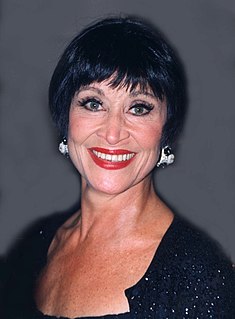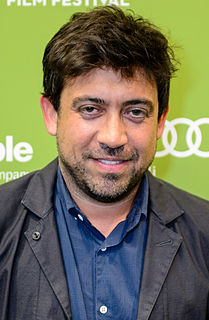A Quote by Judd Apatow
That's very important to me as well: presentation and how people perceive you, the visual of how things look, your posture. I learned that from [Bob] Fosse and Jerome Robbins, from all the great theater directors and the Busby Berkeleys. You overdeliver: visually, emotionally.
Related Quotes
I think one of the things that is important, for me, though a lot of people would disagree with me, is that you be founded in theater so that you understand what an audience is, what kind of an animal it is and how to play with it. How to have fun with it, how to sympathize with it, all the things that an audience is. I don't think you're going to find that out unless you do theater.
Self-censorship has become a part of me. I think because we live in a place where community is very important, family is very important, you feel the weight of how people look at you. Even though I might seem very modern and very liberated, I still have a lot of issues to deal with. I'm scared of how people look at me.
It is not nearly so important how well a message is received as how well it is sent. You cannot take responsibility for how well another accepts your truth; you can only ensure how well it is communicated. And by how well, I don't mean merely how clearly; I mean how lovingly, how compassionately, how sensitively, how courageously, and how completely.
Rock 'n' roll says, 'Hey, man, this is where you can be normal,' and then after a while you grow up and you go, 'Wait a minute. Oh, by the way, I learned how to do these cool things, but I never learned how to speak my mind. I never learned how to express myself emotionally. I should have been paying attention more.'
In the eighties, I was fortunate to be one of the young art directors that Jerry Roach, creative director at JWT New York, took under his wing. He taught me how to use typography more visually, to push against design norms and not to rely on preconceived notions of what something should look like. I learned that nuance is everything and to agonize over the details. I have Jerry to thank for driving plenty of people crazy over the years!
I always kind of see how I want things to be better, and I'm generally not happy with how things are or the level of service that we're providing for people or the quality of the teams that we built. But if you look at this objectively, we're doing so well on so many of these things. I think it's important to have gratitude for that.
I always feel like I learn more from directors that are new, and I also am able to understand how much I really do know about filmmaking when you work with directors that maybe don't have as much experience, so you're able to sort of take the reins. I know how to do these movies, I've done so many of them and have learned from new directors who are usually willing to try new things and are more open to allowing someone like me to kind of come in and just do what I know how to do.







































